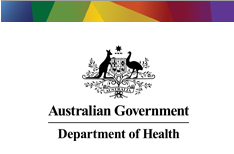According to History Magazine, collecting written knowledge is a practice as old as civlisation itself. Libraries are western civilisation's most successful model of Knowledge Management over many generations. With the invention of the printing press, reliable, mass production and distribution of knowledge was possible. Today, governments support libraries to ensure that published books, magazines, audio and video items are made publicly available, at little or no cost. Academic institutions also maintain libraries to support their research and teaching objectives. Librarians have been responsible for curating these knowledge items and are often the starting point for access to the library.
With the rate of knowledge generation accelerating and the varying forms that knowledge now takes, relying upon an individual librarian or a learned academic to curate our knowledge is no longer feasible. In many organisations, there is usually a reliable go to person for finding the right information on a given subject. This model of Knowledge Management is wonderful – right up to the day that they decide to take some leave! No organisation even dares contemplate these staff members retiring.
Modern organisations need to ensure that knowledge creation, curation and discovery become part of everyday practice. These organisations must provide the tools for and encourage users to capture tacit knowledge and make it easily available to other users within the organisation. The manner in which this knowledge capture takes will depend upon the organisation, it could take the form of a wiki within something like SharePoint, or even just a Microsoft Word document stored in a well-known location.


Government agencies outsourcing legal advice is a well established practice. External legal practices tender to provide legal advice to agency legal teams. Once provided, this advice is a valuable organisational asset which must be leveraged as widely as possible.
The head of Department of Health and Ageing Legal Services Branch recognised the value of this external legal advice and sought help from our staff to better leverage this investment. It was realised that staff within the Legal Services team did not necessarily know what advice had been previously sought. It was entirely possible that a staff member could request an advice identical to previously requested advice.
Our solution was to implement search over previously requested advice and provide simple user interface enabling the current advice to be reviewed. Each new advice is added to the knowledge repository enabling it to be easily found. By enabling the reuse of already purchased advice and associated cost avoidance, our solution paid for itself within a year.
So where to now?
Eager to know more? Perhaps a demonstration is the next step. Get in touch below.